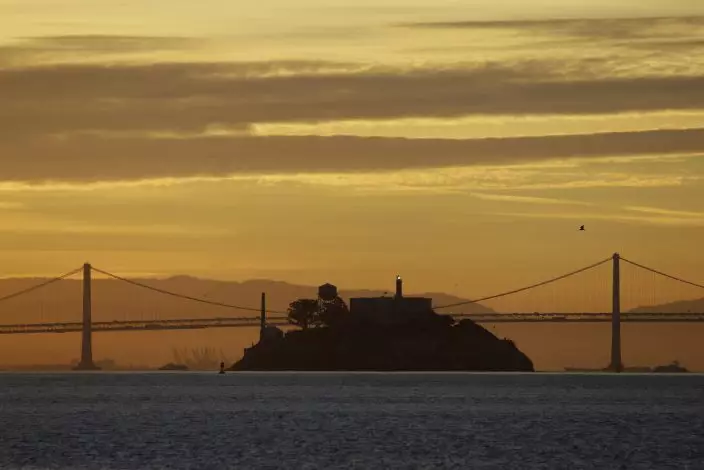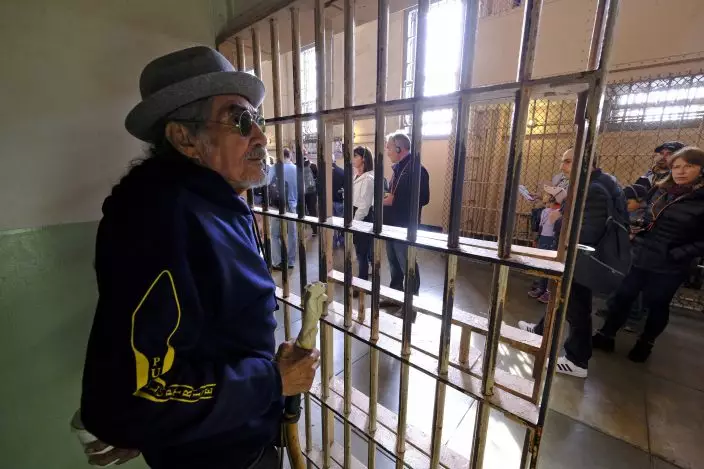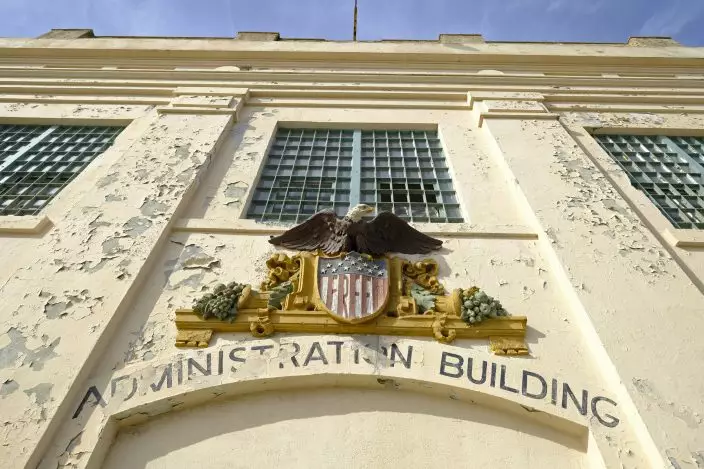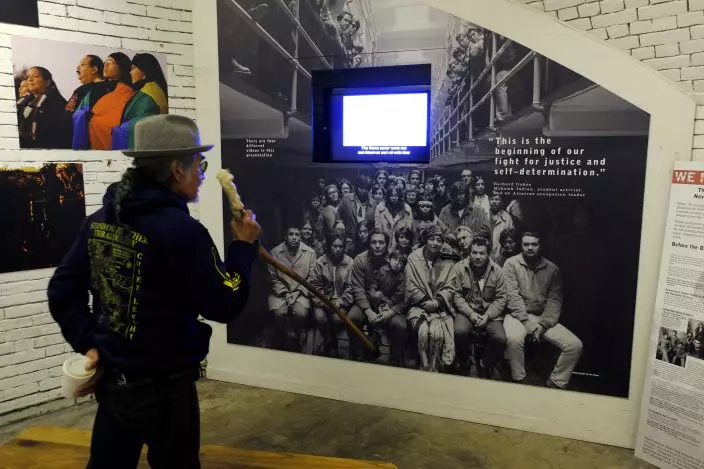On a chilly November night in 1969, a 7-year-old Peter Bratt, his four siblings and their mother left their San Francisco home for the pier.
They and a group of indigenous activists rode a small boat in the fog before landing at their destination — Alcatraz Island.
Now a 57-year-old filmmaker, the older brother of actor Benjamin Bratt says the occupation of the former prison was a “game changer.”

In this photo taken Feb. 1, 2018, Alcatraz Island is seen at sunrise on San Francisco Bay in this view from Sausalito, Calif. In the background is the San Francisco-Oakland Bay Bridge. The week of Nov. 18, 2019, marks 50 years since the beginning of a months-long Native American occupation at Alcatraz Island in the San Francisco Bay. The demonstration by dozens of tribal members had lasting effects for tribes, raising awareness of life on and off reservations, galvanizing activists and spurring a shift in federal policy toward self-determination. (AP PhotoEric Risberg)
The 19-month occupation of Alcatraz, which started on Nov. 20, 1969, is often seen as a seminal event that reinvigorated tribes to organize in the face of a U.S. government steamrolling over their land, their rights and their identities.
Now 50 years later, many Native American activists say they are still struggling to have their voices not only heard but respected.

In this photo taken Tuesday, Nov. 12, 2019, Eloy Martinez, who took part in the Native American occupation of Alcatraz 50 years earlier, stands in the cell that he used to sleep in and looks out at tourists visiting the island in San Francisco. The week of Nov. 18, 2019, marks 50 years since the beginning of a months-long Native American occupation at Alcatraz Island in the San Francisco Bay. The demonstration by dozens of tribal members had lasting effects for tribes, raising awareness of life on and off reservations, galvanizing activists and spurring a shift in federal policy toward self-determination. (AP PhotoEric Risberg)

In this photo taken Tuesday, Nov. 12, 2019, the word "Free" is painted below an eagle figure that hangs on the entryway to the main cell house on Alcatraz Island in San Francisco. The words were added during the Native American occupation of the island. The week of Nov. 18, 2019, marks 50 years since the beginning of a months-long Native American occupation at Alcatraz Island in the San Francisco Bay. The demonstration by dozens of tribal members had lasting effects for tribes, raising awareness of life on and off reservations, galvanizing activists and spurring a shift in federal policy toward self-determination. (AP PhotoEric Risberg)

In this photo taken Tuesday, Nov. 12, 2019, Eloy Martinez, who took part in the Native American occupation of Alcatraz 50 years earlier, looks over a group photograph showing the occupiers displayed in an exhibit on the island in San Francisco. The week of Nov. 18, 2019, marks 50 years since the beginning of a months-long Native American occupation at Alcatraz Island in the San Francisco Bay. The demonstration by dozens of tribal members had lasting effects for tribes, raising awareness of life on and off reservations, galvanizing activists and spurring a shift in federal policy toward self-determination. (AP PhotoEric Risberg)


